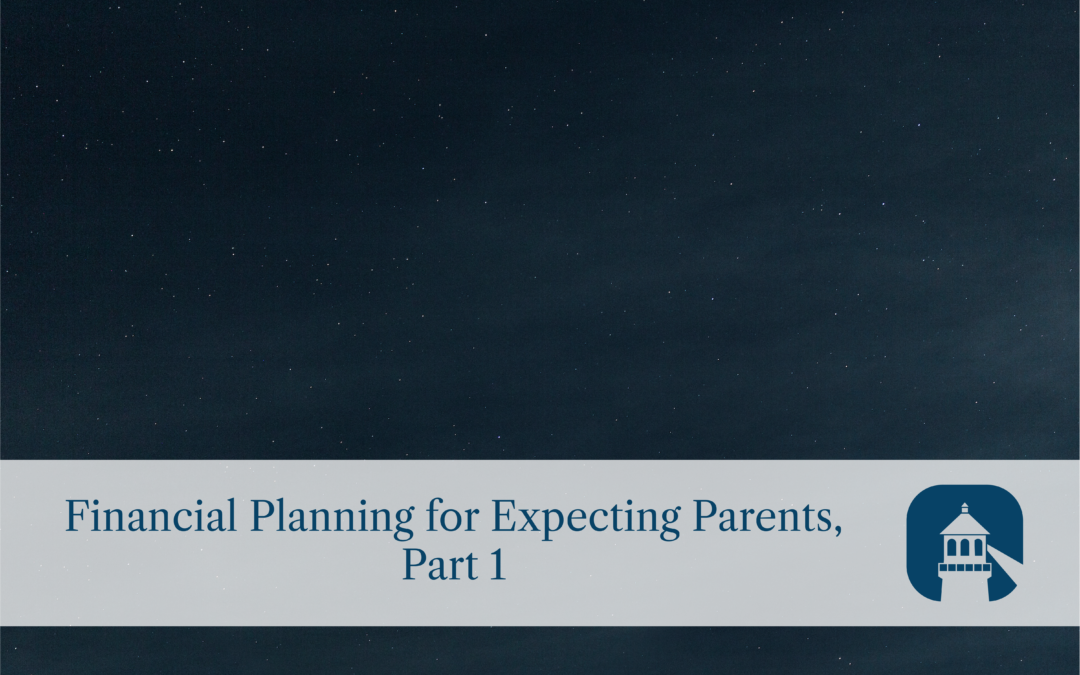If you want to start (or grow) your family, you are likely thinking about all the ways your life will change. Of course, one of those elements is your finances. Kids are expensive, after all. How can you make sure that you’re ready to handle the expenses of your larger family?
Your budget isn’t the only thing you need to think about. There are several other crucial financial considerations, including insurance, education, and parental leave.
We know that it can feel overwhelming to think about all the financial aspects of having or adopting a new baby. But don’t worry — we’re covering all of them in a special two-part blog series on financial planning for expecting parents.
In this first post, we’ll take you through the first few steps of getting your finances ready for this next stage of life.
(When you’re ready, you can read Part Two here.)
Step 1: Start Thinking About Parental Leave
Parental leave is so important for your whole family. It’s a chance to rest, recover, and bond with your new baby. If you have the opportunity to take some time away from work after having or adopting a new baby, we’d encourage you to take it.
Despite the countless benefits of parental leave, it can be financially stressful if some of all of your time away is unpaid. Although some employers offer paid parental leave or allow their employees to take sick leave or vacation time, not all companies provide this benefit.
Depending on your benefits package, you may have short-term disability coverage that allows you to take leave at a reduced salary. Additionally, many companies are covered under the Family and Medical Leave Act (FMLA), which offers up to 12 weeks of leave to new parents. However, FMLA leave is unpaid, so if you want to take it, make sure you have a plan for three months without your usual income.

You need to know what your parental leave situation will look like before you can figure out all the financial implications. It’s a good idea to talk to your employer or HR representative as soon as possible to find out what your options are. Specifically, you need to know how much time you can take and whether it will be paid, unpaid, or partially paid.
Step 2: Identify Where You’re Spending Money
If you’re preparing for a few months or more without pay or with reduced pay, start by analyzing your spending over the last few months. Without judgment, figure out how much money goes into expenses and exactly where it’s going. What do you spend on rent/mortgage payments, utilities, and groceries? What about nonessentials, like entertainment?

Once you have an idea of how much your expenses are each month, you can calculate how much money you and your partner would need to save for a few months of parental leave.
Of course, don’t forget about the additional money you’ll need to spend on your baby. Start with the basics, like diapers, wipes, formula, clothing, and equipment, like a crib and stroller. While it might not be possible to know exactly how much everything will cost, do some research to get a basic idea
Step 3: Make a Plan for Additional Expenses
Remember, diapers and baby supplies aren’t the only extra expenses you’ll need to cover once your little one arrives. You must account for other costs as well.
Health Insurance
Having a baby doesn’t automatically mean your child is added to your insurance coverage, so it’s essential to read through the specifics of your coverage plan. Some insurance providers charge you per dependent, while others will have a family plan that is inclusive of multiple dependents.
Verify whether you’ll maintain health insurance coverage during parental leave. Sometimes taking short-term disability or unpaid leave can affect health insurance claims. And check on the paperwork you’ll need to provide to get your baby’s insurance card so you can submit the forms as soon as possible.
Convenience Services
Rest and recovery are good goals to focus on during parental leave, but those things don’t just happen automatically. Caring for a newborn is a significant amount of work, and there’s nothing wrong with getting some extra help!

You might be able to rely on family for additional help, especially if you live in an intergenerational home. If that’s not an option (or you want more support), consider spending a little extra money to outsource some of that work.
Hiring a housekeeper, paying for grocery delivery or takeout, using a laundry service — think about which tasks you’d rather someone else take care of. Again, there’s no right or wrong answer. Decide what’s most important to you, and see if you can fit the costs into your budget.
Childcare
It’s never too early to start thinking about childcare, either during or after your parental leave. There are so many options, from choosing to have one partner stay home full-time to hiring a full-time nanny to finding something in between.
Childcare can be extremely expensive — your monthly daycare costs might be more than your mortgage or rent! So take the time to think about all the options, decide which one offers the most benefits for your family, and start running the numbers.
It’s Never Too Early to Plan
Expanding your family permanently changes your personal financial situation. The earlier you can start to plan for those differences, the easier the adjustment will be. Don’t forget to read Part Two of this series to see what other financial considerations you need to plan for.
If you’re looking at all these things and feeling overwhelmed, we understand. Financial planning can feel like a lot, especially when you’re making big changes. If you’d like personalized advice and support from an experienced financial planner, sign up for our Baby Budgeting Plan service.
For a single affordable fee, you’ll meet with a planner, discuss your situation, and leave with a customized plan to get your finances in order for a new baby. Get all the details and book your Baby Budgeting Plan today!

